October 15, 2024
Former Tzu Chi scholar gives Humanity class on responsible use of technology
By Joy Rojas
When Elvin Mercader, guest speaker of the Humanity class held on October 13 at the Buddhist Tzu Chi Campus in Sta. Mesa, Manila, asked the 314 Tzu Chi scholars at the Jing Si Hall what’s the first thing they do when they wake up in the morning, the vast majority’s answer came as no surprise.
“Check my phone,” the scholars said in unison.
These days, a life without technology—smart phones, computers, wi-fi, apps—is inconceivable. Like their peers, Tzu Chi scholars and Polytechnic University of the Philippines students Carlito Aguilar Jr. and Maven Brences use social media sites Facebook and Instagram to communicate with family and friends and keep abreast of trends.
For school, Aguilar, who is taking up journalism, turns to Scopus Indexed Journals “when I need to expand what I’m writing. Most of my professors are actually from [online news website] Rappler, so I go to that whenever I need information,” he says. Brences, an information technology major working on his thesis, relies on Google Scholar and ChatGPT—but not for writing, he quickly clarified. “I use it for project management and to test my logic.”
Yet for all its convenience, ability to connect with people anywhere in the world, and instant access to information and entertainment at their fingertips, the internet has also been used for spreading misinformation, cyberbullying, scamming, and crime.
Mercader’s talk, “Harnessing Technology for Good: A Discussion on Responsible Use,” emphasized that while the internet is available to all, it is a powerful tool that can change lives—for better or worse—with a simple click. As such, it’s important to use it judiciously and ethically.
“Right now, technology has so impacted our community, it brings more opportunities as well as risks whenever we use it,” says Mercader, a former Tzu Chi scholar who now works as a senior director in the Technology Risk Advisory and Assurance Group of prestigious auditing firm Sycip Gorres Velayo (SGV) & Company. “I reminded scholars of their responsibility and role in making sure that information technology is used responsibly, and gave calls to action and practical strategies that they can do on a personal level and when they become professionals.”
His suggestions on responsible use are applicable to all ages and generations that rely on technology. “Set boundaries,” he says. “Limit your screen time, don’t use gadgets when you’re having a meal with your family. Practice digital etiquette and respect. Think before you post. Promote positive online behavior. Educate yourself. Protect your personal information. Respect copyright laws. Verify information. Use parental control. And recycle electronics.”
Aguilar and Brences have a few tips of their own. “Use social media to bring the truth to light, not to conceal the truth,” says Aguilar. “It’s important to fact-check and to do that, you can turn to reliable media outlets and platforms.”
For Brences, a class on cybersecurity taught him “that there is no absolute security. But there are ways to prevent or mitigate the harm of being present online. Don’t click links from untrustworthy sources. If your identity is compromised, report it right away. And don’t attack the person who stole your identity. Leave it to the pros to manage.”
“For me, technology is a double-edged sword,” he says. “It can help someone, or put someone in danger. I think it helps more than harms, especially if you use it correctly.”
The Manila-based Humanity class was livestreamed in Pampanga, Bicol, and Davao. Humanity classes in Tzu Chi Palo and Zamboanga focused on financial literary, while Tzu Chi volunteers in Davao and Iloilo introduced scholars to Tzu Chi etiquette.
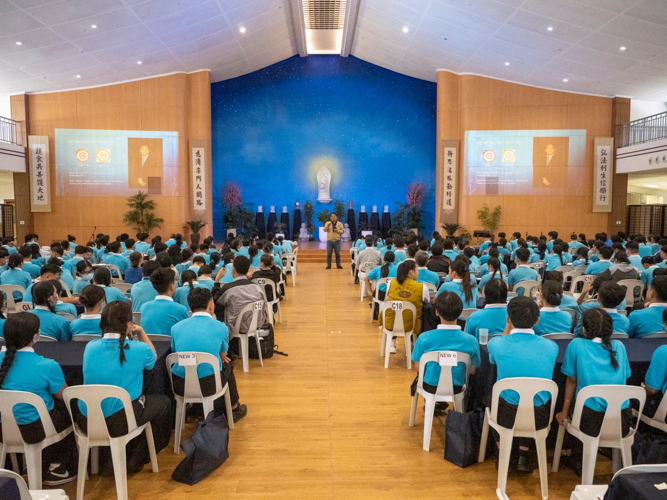 Elvin Mercader (center, standing) gave a Humanity class on “Harnessing Technology for Good: A Discussion on Responsible Use.” Now senior director in the Technology Risk Advisory and Assurance Group of prestigious auditing firm Sycip Gorres Velayo (SGV) & Company, Mercader was a Tzu Chi scholar from grade school to college, where he graduated cum laude with a degree in accounting from the University of Santo Tomas.
Elvin Mercader (center, standing) gave a Humanity class on “Harnessing Technology for Good: A Discussion on Responsible Use.” Now senior director in the Technology Risk Advisory and Assurance Group of prestigious auditing firm Sycip Gorres Velayo (SGV) & Company, Mercader was a Tzu Chi scholar from grade school to college, where he graduated cum laude with a degree in accounting from the University of Santo Tomas.
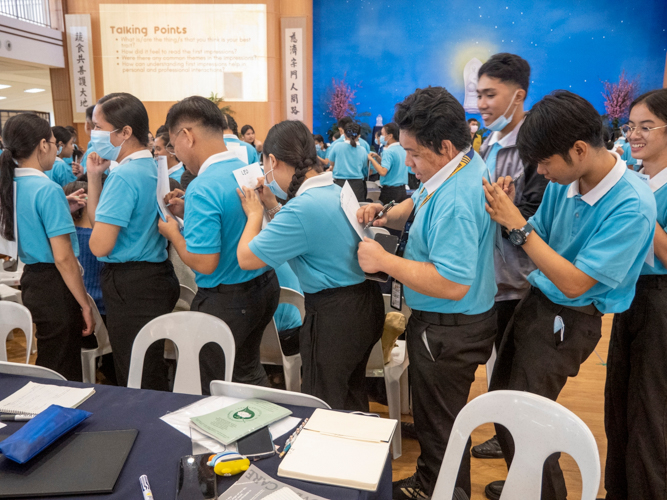 Before the Humanity class, Tzu Chi scholars joined an activity on first impressions, writing their initial thoughts about fellow scholars on a piece of paper stuck to their back.
Before the Humanity class, Tzu Chi scholars joined an activity on first impressions, writing their initial thoughts about fellow scholars on a piece of paper stuck to their back.
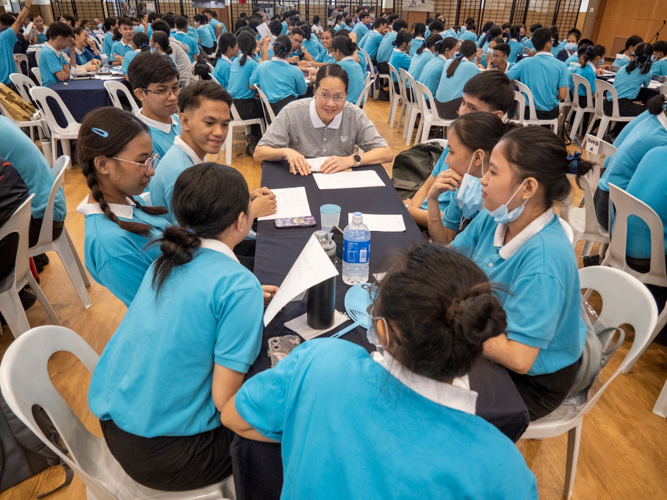 Tzu Chi volunteer Joy Gatdula (in gray) moderates a discussion among a group of scholars after an activity.
Tzu Chi volunteer Joy Gatdula (in gray) moderates a discussion among a group of scholars after an activity.
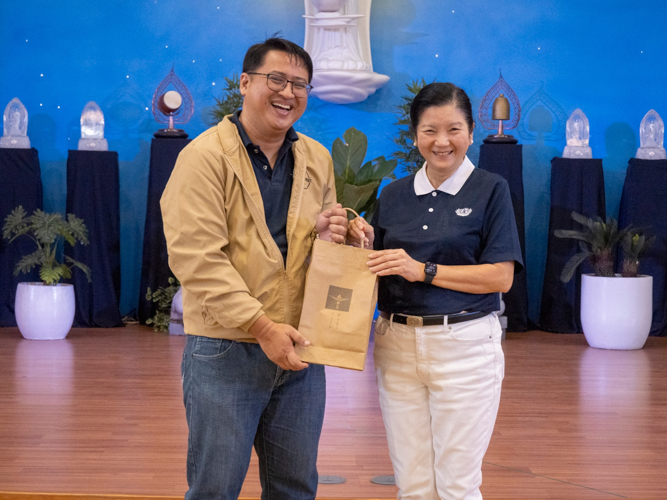 Elvin Mercader (left) receives a token of appreciation from Tzu Chi Education Committee Head Rosa So.
Elvin Mercader (left) receives a token of appreciation from Tzu Chi Education Committee Head Rosa So.
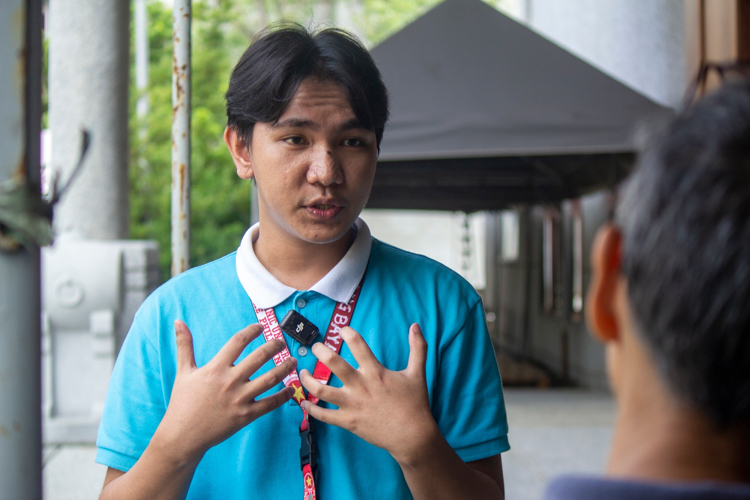 As a journalism student at the Polytechnic University of the Philippines, Carlito Aguilar wants people to “use social media to bring the truth to light, not to conceal the truth.” He recommends fact-checking with reliable media outlets and platforms.
As a journalism student at the Polytechnic University of the Philippines, Carlito Aguilar wants people to “use social media to bring the truth to light, not to conceal the truth.” He recommends fact-checking with reliable media outlets and platforms.
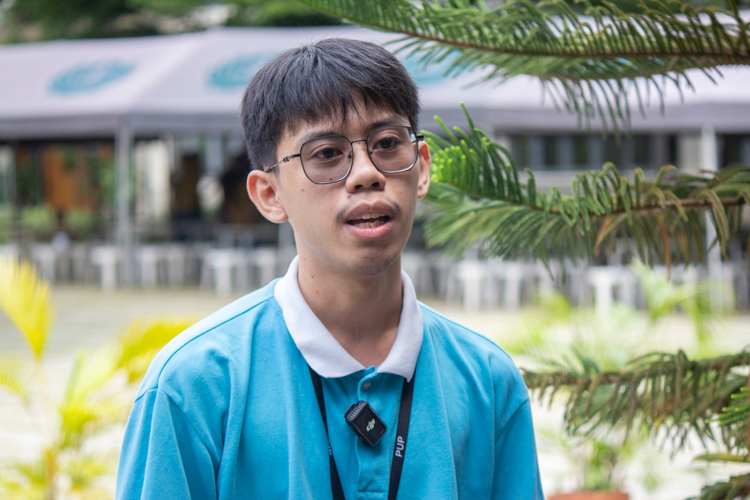 Polytechnic University of the Philippines IT student Maven Brences sees technology and the internet as “a double-edged sword. It can help someone, or bring put someone in danger. I think it helps more than harms, especially if you use it correctly.”
Polytechnic University of the Philippines IT student Maven Brences sees technology and the internet as “a double-edged sword. It can help someone, or bring put someone in danger. I think it helps more than harms, especially if you use it correctly.”
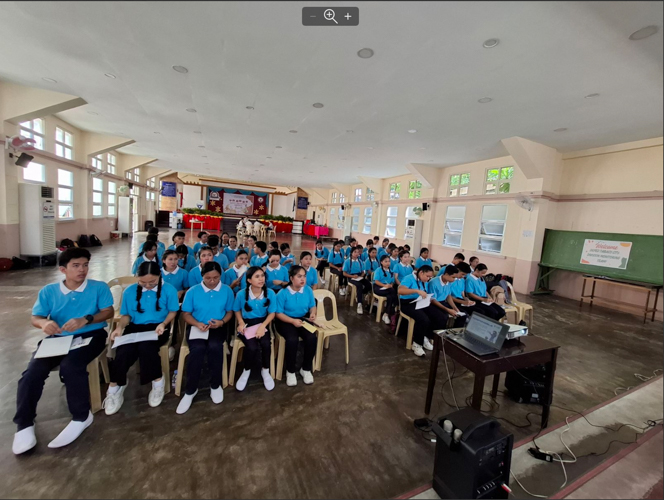 In Bicol, Tzu Chi scholars attended the Manila-based Humanity class via livestream.
In Bicol, Tzu Chi scholars attended the Manila-based Humanity class via livestream.
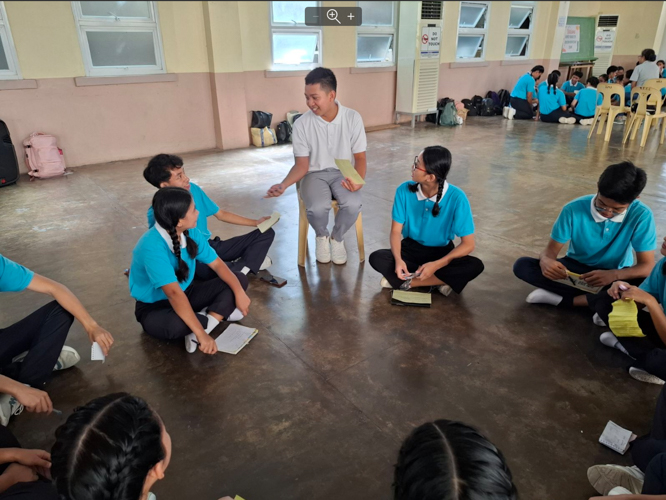 Former Tzu Chi Bicol scholars volunteered to facilitate the Humanity class.
Former Tzu Chi Bicol scholars volunteered to facilitate the Humanity class.
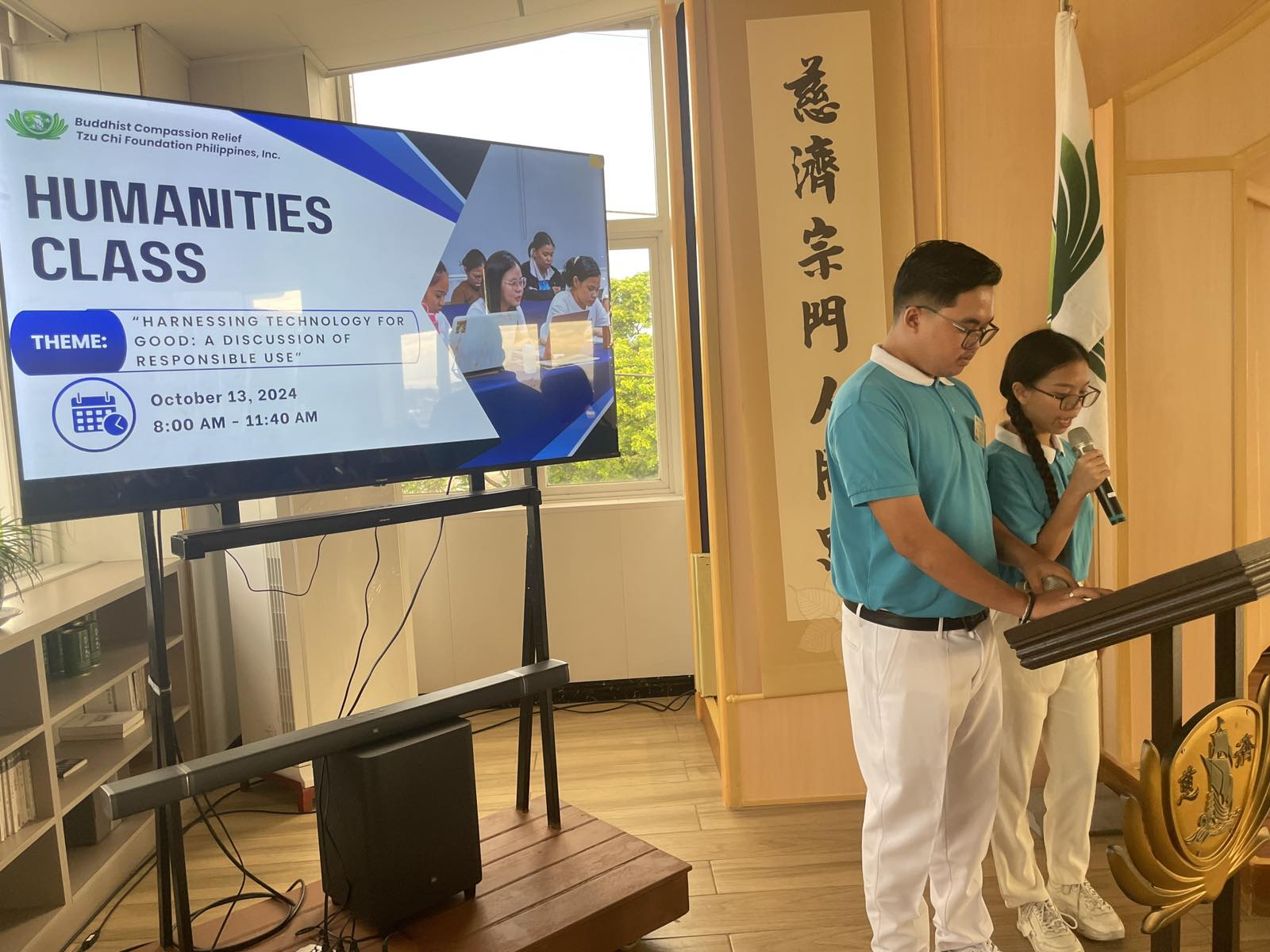 Also watching the Humanity class in Manila via livestream were Tzu Chi scholars in Pampanga.
Also watching the Humanity class in Manila via livestream were Tzu Chi scholars in Pampanga.
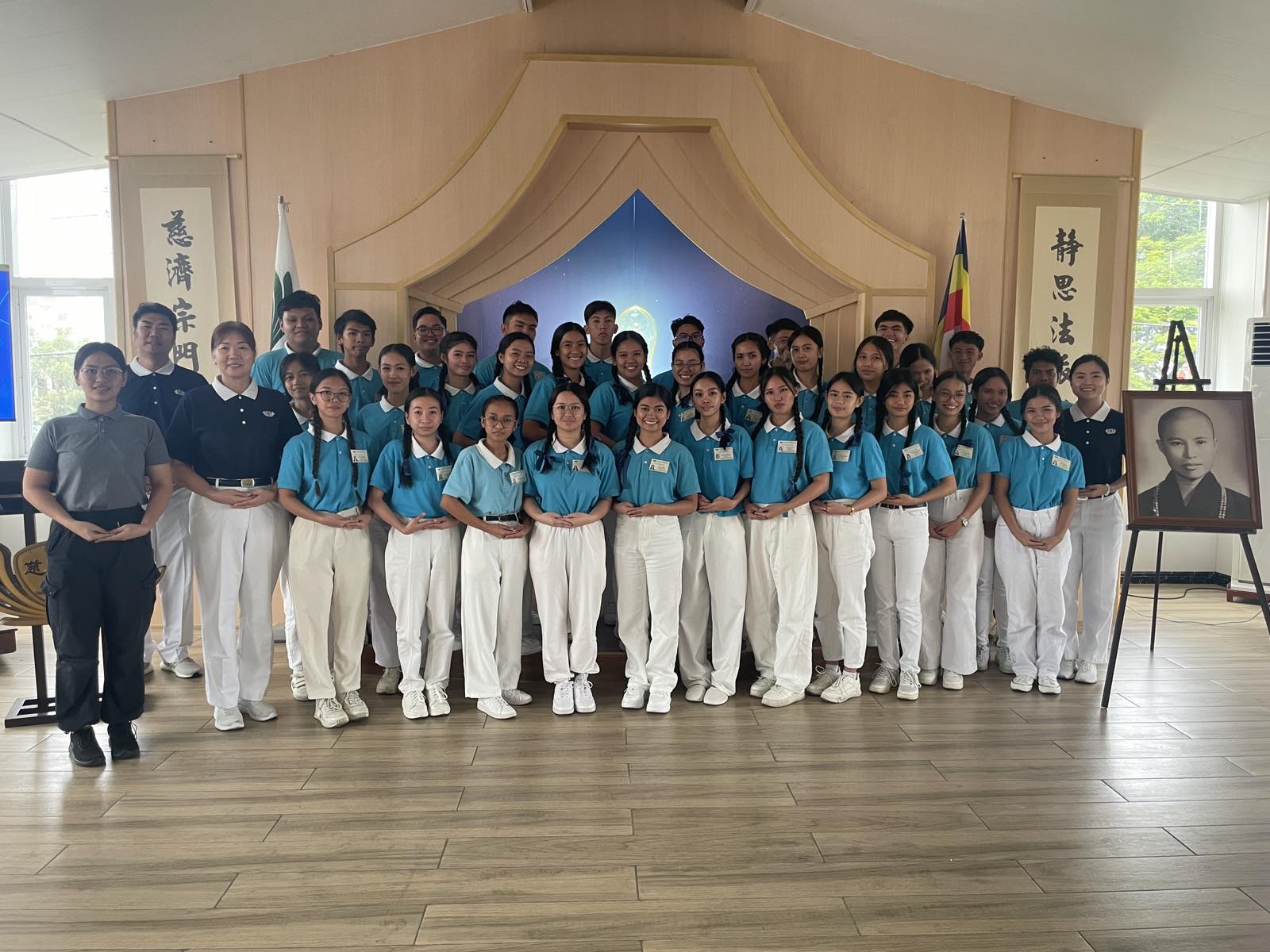 Tzu Chi volunteers and scholars in Pampanga pose for a group shot.
Tzu Chi volunteers and scholars in Pampanga pose for a group shot.
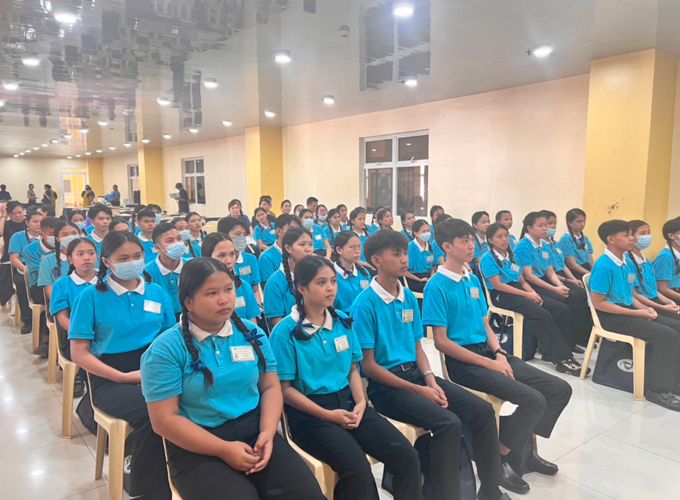 In Tzu Chi Davao, Humanity class included a talk on Tzu Chi etiquette.
In Tzu Chi Davao, Humanity class included a talk on Tzu Chi etiquette.
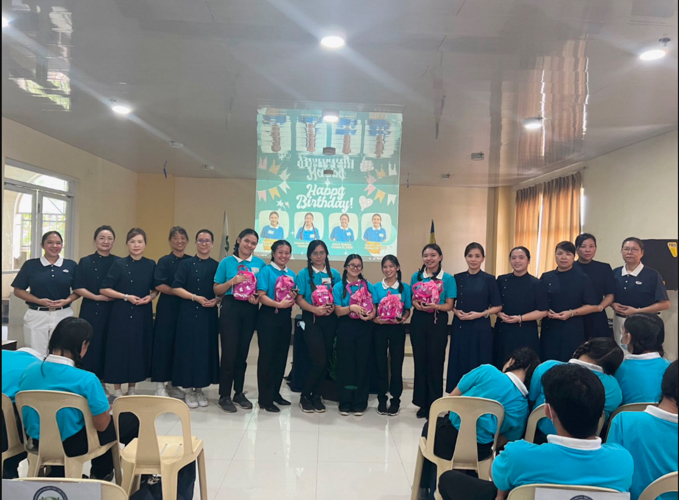 Tzu Chi Davao scholars who celebrated their birthday were recognized during Humanity class.
Tzu Chi Davao scholars who celebrated their birthday were recognized during Humanity class.
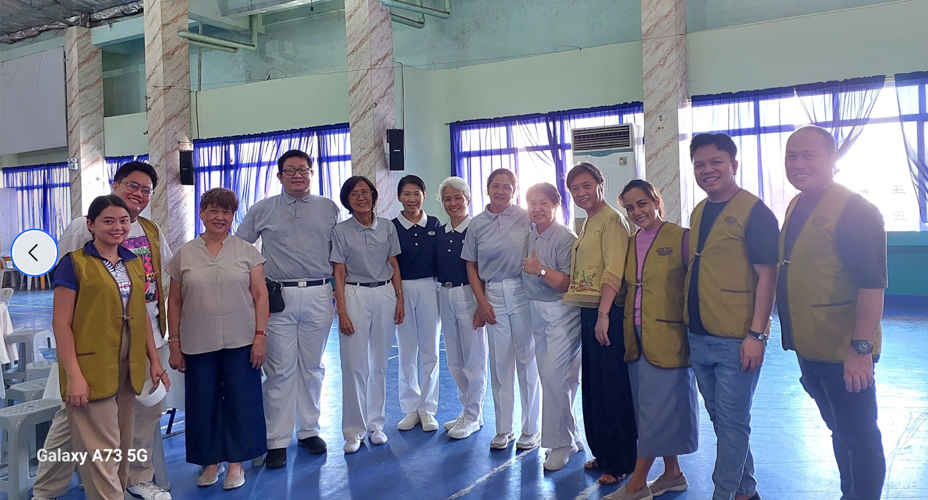 Manila-based volunteers Levy Yao and Deputy CEO Woon Ng (seventh and eighth from right, respectively) joined Tzu Chi Iloilo volunteers in their Humanity class.
Manila-based volunteers Levy Yao and Deputy CEO Woon Ng (seventh and eighth from right, respectively) joined Tzu Chi Iloilo volunteers in their Humanity class.
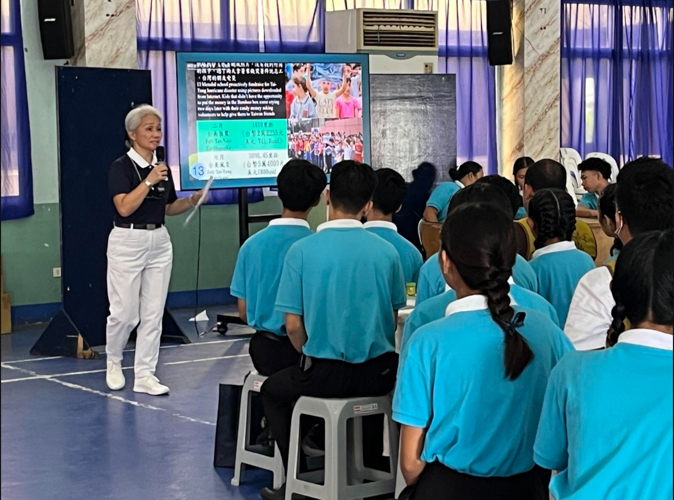 Manila-based Tzu Chi volunteer Levy Yao conducts the Humanity class for Tzu Chi Iloilo scholars.
Manila-based Tzu Chi volunteer Levy Yao conducts the Humanity class for Tzu Chi Iloilo scholars.
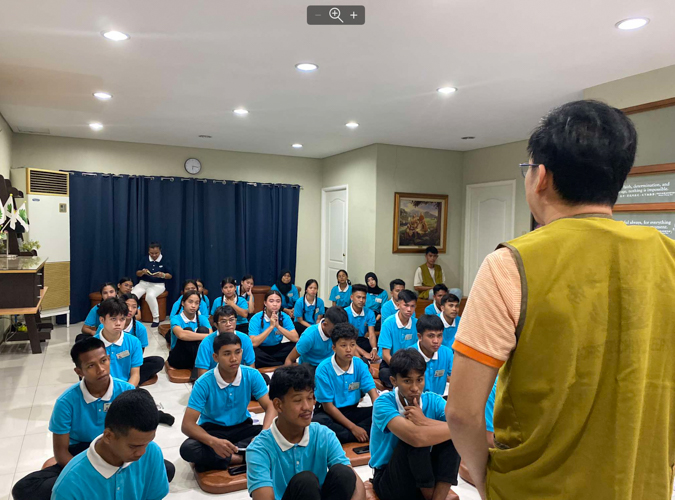 Financial literacy was the subject of the October 13 Humanity class in Tzu Chi Zamboanga. Thirty-two scholars, 15 of them new, attended the class moderated by seven Tzu Chi Volunteers.
Financial literacy was the subject of the October 13 Humanity class in Tzu Chi Zamboanga. Thirty-two scholars, 15 of them new, attended the class moderated by seven Tzu Chi Volunteers.
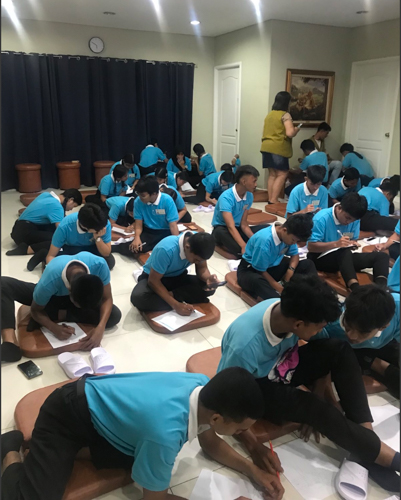 For Tzu Chi Zamboanga scholars, part of their Humanity class on financial literary involved writing their budget and expenses for the week.
For Tzu Chi Zamboanga scholars, part of their Humanity class on financial literary involved writing their budget and expenses for the week.
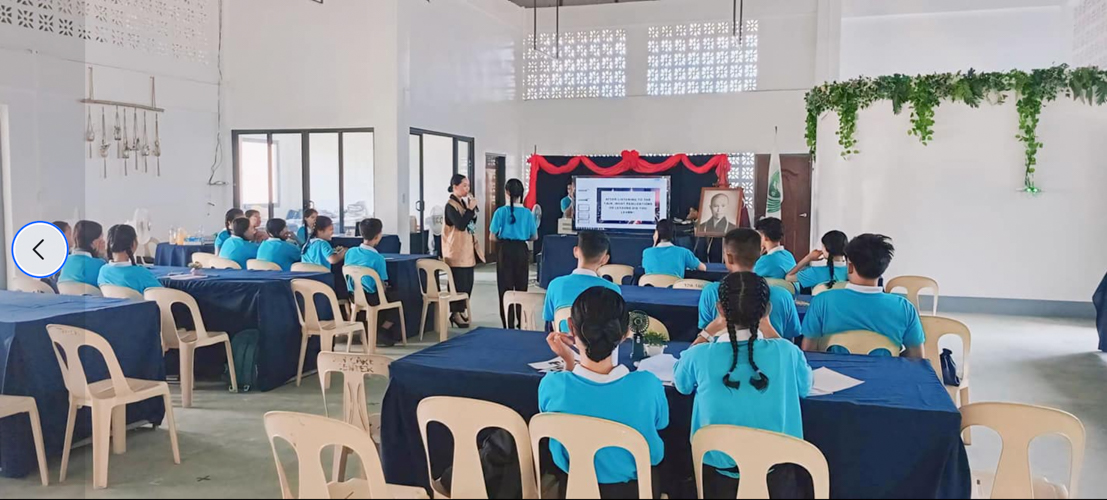 Tzu Chi Palo scholars listened to a talk on “Financial Wisdom for Compassionate Action!” for their Humanity class.
Tzu Chi Palo scholars listened to a talk on “Financial Wisdom for Compassionate Action!” for their Humanity class.
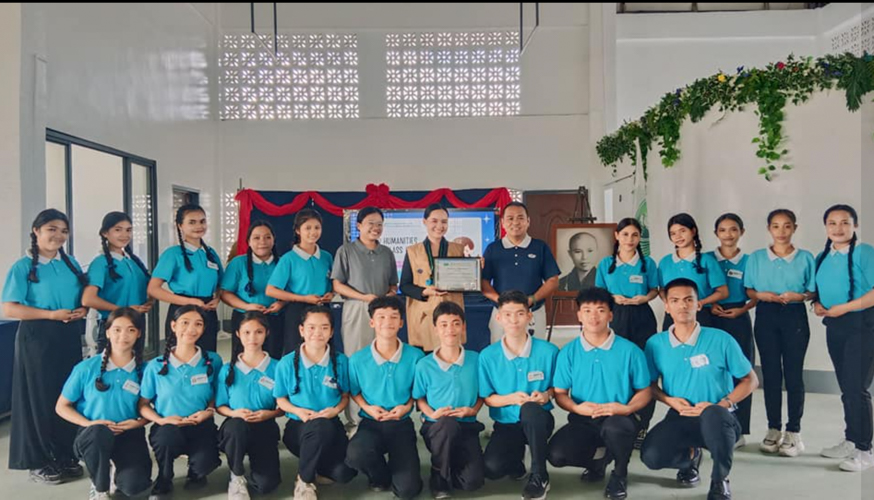 Financial literacy speaker Ma. Arianne Faye Torreros (in Tzu Chi vest) received a certificate of appreciation from Tzu Chi Palo, headed by Tzu Chi volunteer Randy Militante (back row, sixth from right).
Financial literacy speaker Ma. Arianne Faye Torreros (in Tzu Chi vest) received a certificate of appreciation from Tzu Chi Palo, headed by Tzu Chi volunteer Randy Militante (back row, sixth from right).





